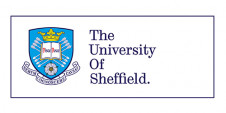THOUGHT LEADERSHIP CLUB Evaluation of the Urban Waste Water Treatment Directive
Start Date
30.01.2019
End Date
30.01.2019
First implemented 25 years ago, the European Commission is currently evaluating the Urban Waste Water Treatment Directive 91/271/EEC (UWWTD) to assess its effectiveness and relevance in today’s society. Its challenging requirements have contributed to some notable achievements. For example, 95% of the EU’s urban waste water is collected and over 85% is treated according to the Directive’ requirements. However, many changes have occurred over the last 25 years: emerging pressures on the environment, demographic developments, climate change impacts, progress in science and technology and societal expectations and norms etc. Further new directives have come into force, such as the Water Framework Directive (2000/60/EC). The UWWTD is considered essential to achieve the WFD’s targets for good chemical and ecological status of surface water bodies.
As part of its better regulation agenda, the EC is placing greater emphasis on stakeholder engagement and its inclusion within policy review and development. The evaluation of the UWWTD included a standard 12 week public consultation period which the WssTP Urban Water Pollution Working Group (UWP WG) responded to through submission of a response to the formal consultation questionnaire and a UWP WG policy paper. Following the public consultation, which is now closed, the UWP WG has agreed to submit a more detailed set of policy recommendations, and hence we greatly welcome this opportunity to collate and integrate the views of the TLC members in developing this more detailed response.
For more information on the public consultation and responses, see here
For current UWP WG policy paper, see here
At the event we will discuss the effects the UWWTD had for the UK and identify the current gaps in the regulation. We will produce a position paper from the UK water sector, including policy recommendations. The position paper will be submitted to the European Commission as input to the evaluation process.
The event is free to attend. Please see here for the detailed programme of the TLC and here for Registration details
